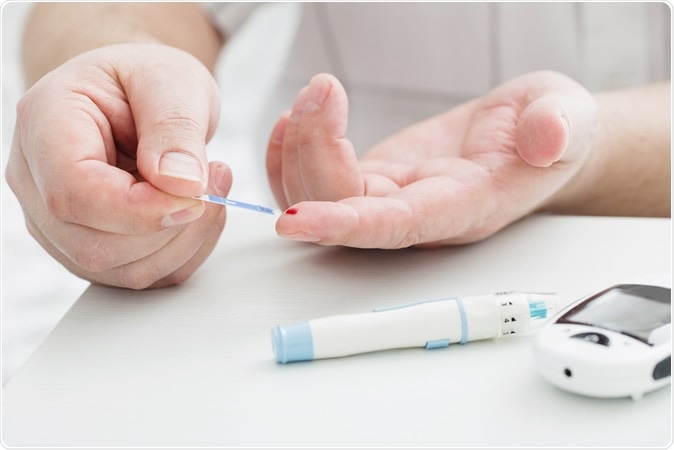Adults with type 2 diabetes mellitus respond to medical treatment by producing more insulin, but there is no long-term effect on insulin secretion after treatment stops, concluded a pair of clinical trials. The research was published June 9 in the journals Diabetes and Diabetes Care and presented at the American Diabetes Association Scientific Sessions in San Francisco.

Maya Kruchankova / Shutterstock
With younger people (10-19 years), the disease progresses faster and is more difficult to treat, showing no response to the same drugs during and after treatment.
The Restoring Insulin Secretion (RISE) Adult and Pediatric Medication Studies were conducted over a period of 15 months each, in both adults and young people. These studies looked at how medical treatment affected insulin-producing beta cell function in obese people with impaired glucose tolerance (prediabetes), or those who were diagnosed with type 2 diabetes within the last year.
“By examining the effects of different treatments in people with prediabetes and early type 2 diabetes, who still produce substantial amounts of insulin, we hope to learn how to reverse or slow the progressive loss of insulin production that comes with increasing duration of the disease, so that these people can stay healthier longer,” said scientist Peter Savage.
Type 2 diabetes and prediabetes currently affect over half of people over the age of 65 years. They are also becoming more common in young people with the increase in childhood obesity.
In this condition, the body produces less insulin than it needs. Insulin is a hormone that helps the body take glucose from the bloodstream into its cells, for use as fuel in multiple cellular processes.
As blood glucose rises, following a meal, for instance, insulin is produced by specialized cells called beta-cells. These are found within the pancreas, an organ lying deep in the upper abdomen. Poor beta-cell function is central to the development of prediabetes and type 2 diabetes, and causes glucose to pile up in the blood.
In young people, beta cells respond more sensitively to increases in blood glucose levels, but their function also declines more rapidly and irreversibly in this group. In prediabetes, some beta cells function, secreting insulin. However, the amount produced is not enough, resulting in higher than normal blood glucose concentrations, though below the diabetic range.
Over time, the insulin deficit, and therefore the average blood glucose levels, increases in both categories.
In the current trials, adults between 20 and 65 years were assigned to one of three treatment groups:
- Long-acting insulin glargine for 3 months and then metformin for 9 months
- A combination of liraglutide (which stimulates insulin secretion in response to food) and metformin for 12 months
- Metformin alone for 12 months
A fourth group was on placebo. Insulin levels in all the subjects were tested again 3 months after the study ended.
While on treatment, adult patients showed better beta cell function in terms of weight loss and stable blood glucose levels. All treatments proved equally effective, with a slightly better response to glucose in the second group. However, there was no durable improvement with any medication once treatment was stopped. The lack of stable improvement in beta cell function after the withdrawal of medication means that patients with prediabetes or early diabetes must continue to take treatment lifelong.
The RISE Pediatric Medication Study in 2018 compared treatment with the glargine-metformin sequence, vs metformin alone, in younger patients, but found that beta cells continued to fail while treatment was continuing, with disease progression worsening once medication was stopped.
The results confirmed what earlier studies suggested: type 2 diabetes in youth is more difficult to treat than in adults. The reasons for this are still unknown.
Scientists are concerned about the failure of young type 2 diabetics to respond during or after treatment. Study author Ellen Leschek said, “Though the medications' effectiveness for adults while on treatment is reassuring, the poor results for youth in the study, both during and after treatment, underscore the continued urgent need for new approaches to prevent and treat type 2 diabetes in youth, since the disease progresses more rapidly given the same treatment as adults.”